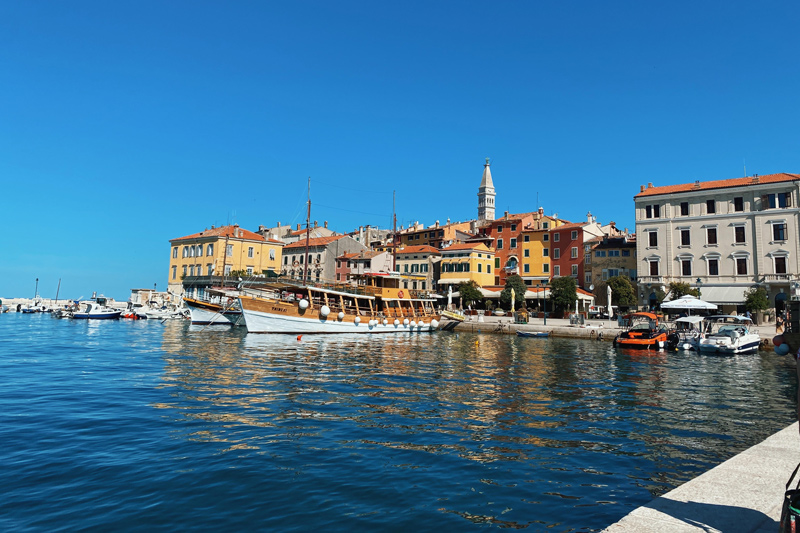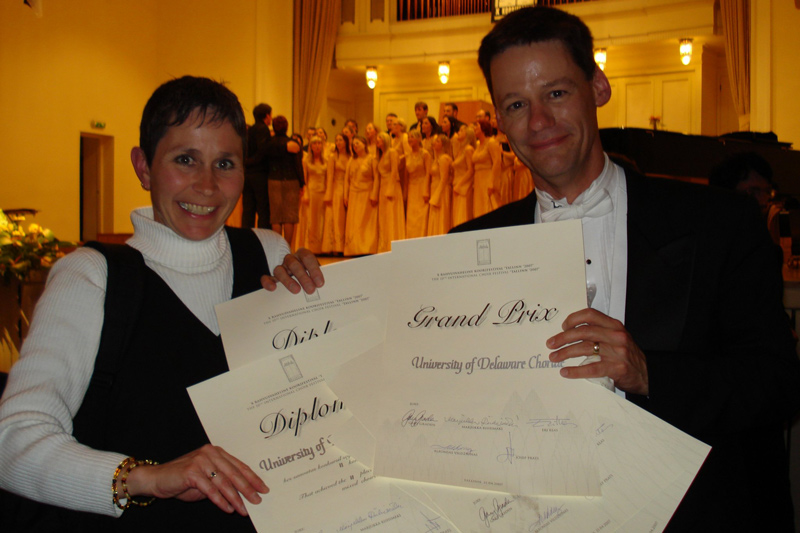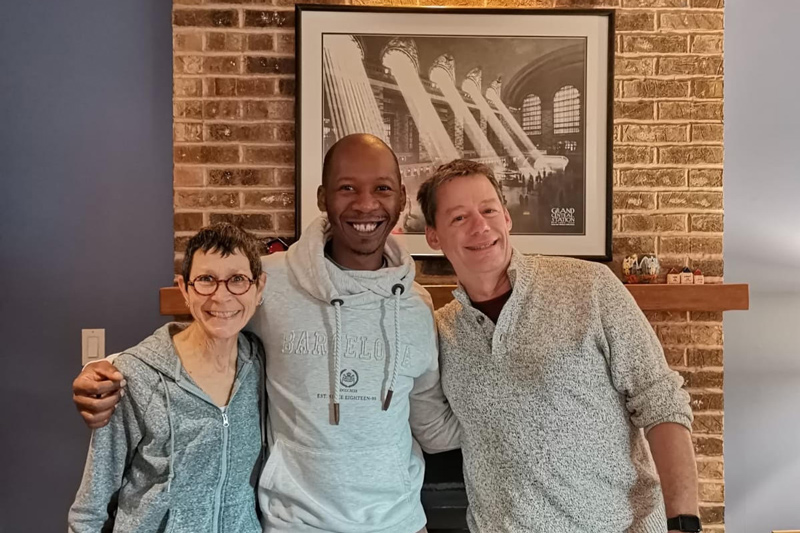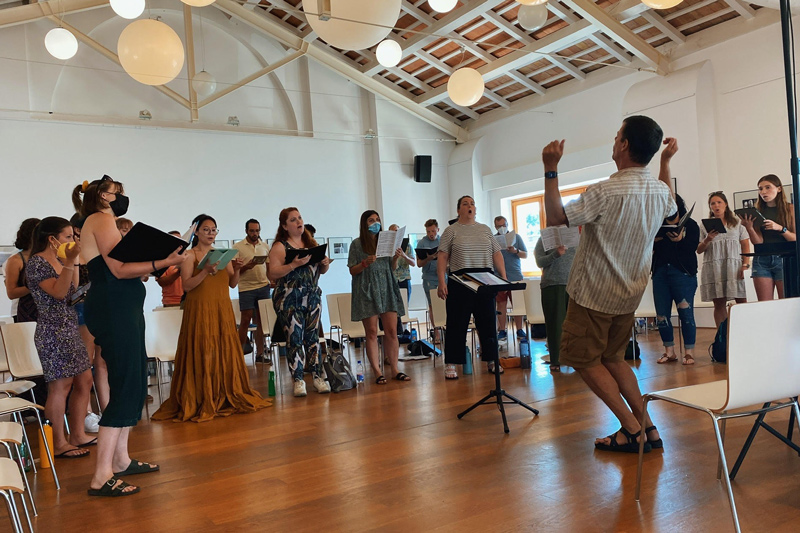

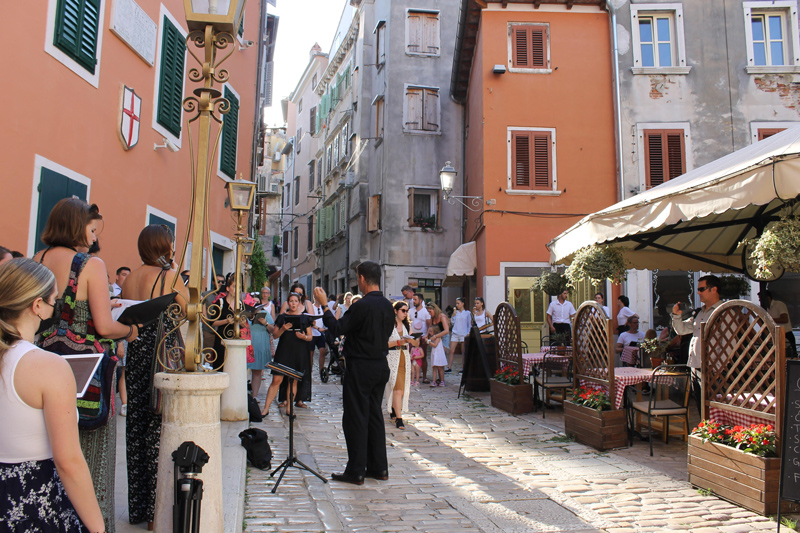
I’d like to teach the world to sing
Photos courtesy of Paul Head, Brent Shrader, Kelly Puza, Sarah Wojcik September 08, 2023
The UD Chorale performs for audiences around the globe
All the world’s a stage.
The Shakspearean phrase rings especially true for members of the University of Delaware Chorale, one of the most highly regarded University choirs in the United States.
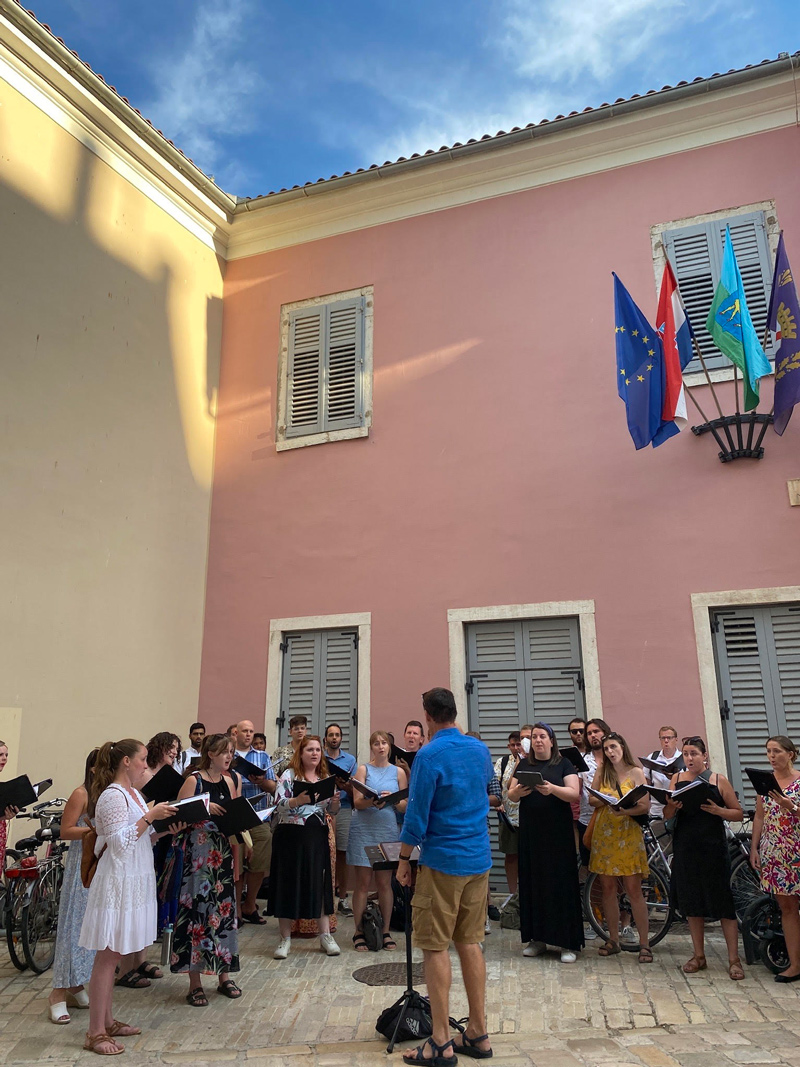
Along the Great Wall of China? They’ve sung there. Underneath a Roman aqueduct in France? There, too. Within a glistening salt cave near the Dead Sea in Israel? The acoustics were wild.
“It is unusual for a university choir to travel this much,” said director Paul Head, Unidel professor of music. He attributes the touring largely to the generous philanthropy of Claudia and Richard Fischer, longtime supporters of the School of Music, and also to the passion and conviction of his singers: “Their success begets success.”
The globe-trotting began in 2007. After earning accolades at a national convention in Los Angeles, the group received an invitation to perform at an internationally renowned choral competition in Estonia, a country that won its independence from the Soviet Union partially via protests involving patriotic choral singing. Against 40 ensembles from around the world, 56 Blue Hen singers took home the top prize — a first for an American choir in 13 years.

“This was a remarkable opportunity,” said participating singer Brent Schrader, a 2009 graduate who now serves as UD’s associate university secretary. “We got a sense for just how big — and also how small — the world really is. And I developed a true affinity for the University and the opportunities it affords. It sounds cliché, but UD really is a special place.”
The win sparked more invitations to travel — typically, the Chorale takes at least one overseas trip per year. In addition to regional tours (venues like Philadelphia’s Kimmel Center and New York’s Carnegie Hall), the singers have performed gospel, folk and virtuoso music at festivals, competitions and symposiums throughout Europe and Asia. And they’ve enjoyed life-changing moments along the way.
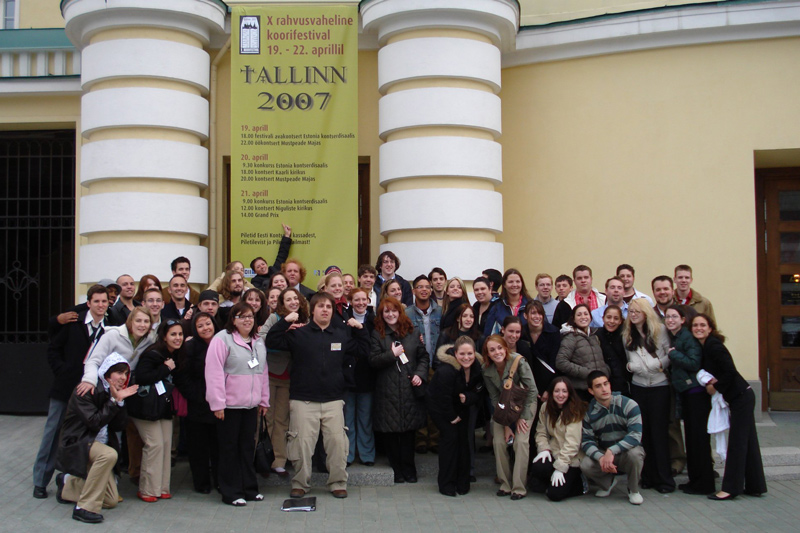
Ryan Doyle, a 2021 honors graduate, will never forget singing inside the Saint-Sauveur Cathedral, a twelfth-century monument in France that, legend has it, exists on the foundations of a Roman temple dedicated to Apollo, god of the sun. (For the modernists, the group also staged singing flash mobs in the street, belting William Dawson’s “Soon I Will be Done” and Moses Hogan’s “Battle of Jericho.”)
“It was such an immersive experience to perform inside these buildings that are older than the United States,” said Doyle, who recently completed his master’s degree in choral conducting at McGill University in Montreal. “This ensemble affords so many meaningful musical experiences, and my time with the group confirmed: This is what I want to do with my life.”
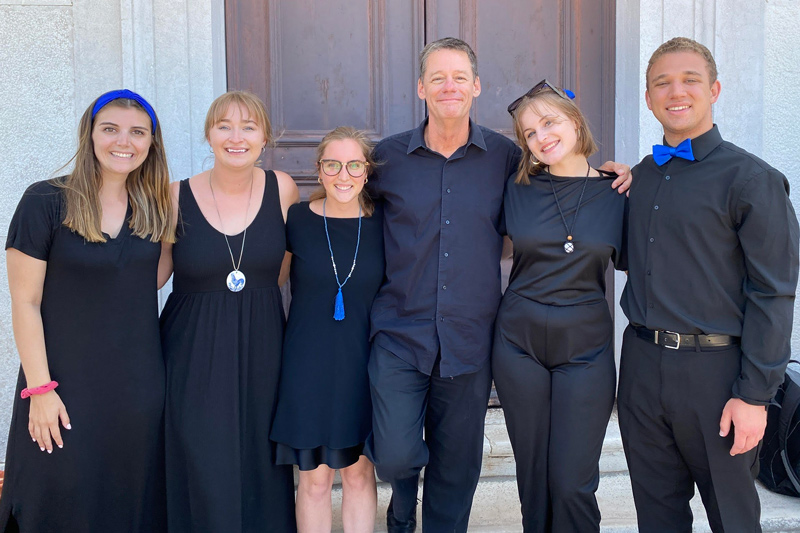
Beyond feeling the reverb of Renaissance-era architecture, members cite another value of traveling to sing: forging cross-cultural connections through music.
Consider Sarah Wojcik, a Blue Hen who also recently completed a master’s degree in choral conducting. In the United Kingdom last September, she performed for Prince Charles, now the King of England, at an annual celebration of Scottish heritage. But it’s her recent trip to Croatia that she calls “mind-blowing.” During an impromptu concert on a cobblestone street in Rovinj, she and her peers sang for delighted passersby. Although these spectators couldn’t necessarily understand the English lyrics, they stopped to listen, clap, even dance along. The moment served as an important reminder: Music transcends borders.
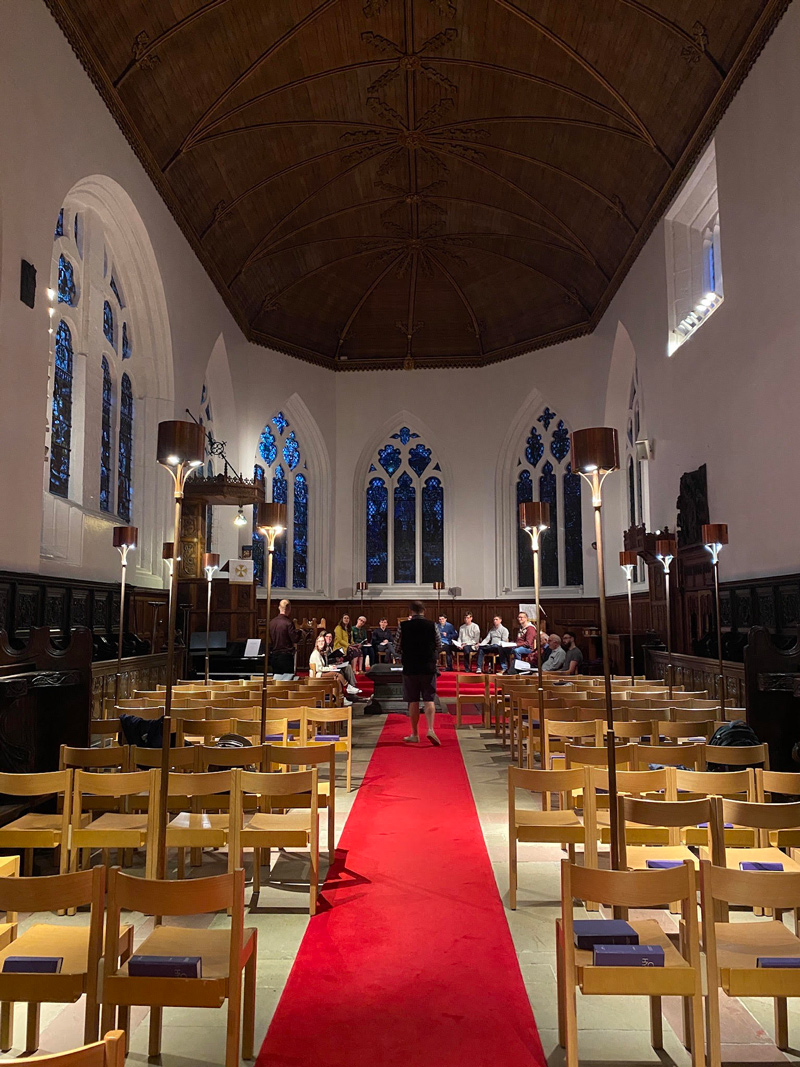
“It’s the international language,” Wojcik said. “And once you participate in this type of cultural exchange — once you see the world — you can’t go back.”
Opening eyes to the global community in this way is a core tenant of the Chorale mission. Even while the group is traveling to compete, members inevitably connect with musical adversaries, forming friendships that lead to collaborations — recently, Sabelo Mthembu, an award-winning conductor from South Africa, visited UD to share a bit of his choral tradition with the School of Music.
These experiences redefine musical goals and ideals. But even more importantly, they contribute to a better, more tolerant world.
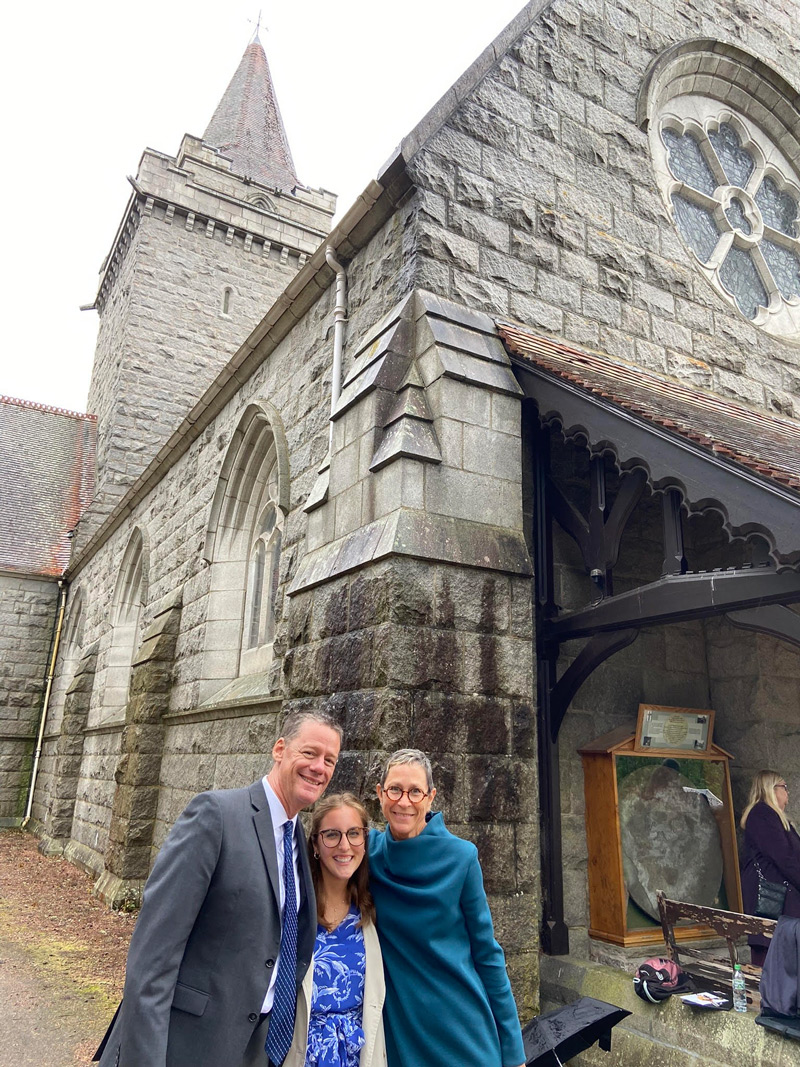
Head, the Chorale director, pointed to one transformative moment from a competition in Spain in 2010. One evening, choirs from around the globe found themselves in the same Barcelona restaurant for a late-night dinner. One table from Bulgaria spontaneously launched into a song distinctive to Bulgarian culture. A table from Germany then followed suit. Then another table. And another. Soon, a multilingual concert was underway, with participants reveling in a shared passion, a familiar adage top of mind: “If everyone sang in a choir, there would be no war.”
Most recently, during the summer of 2023, the Chorale traveled to Wales for the Llangollen Choir of the World event, which you might call the Super Bowl of singing competitions. They secured a first-place win in the Open Choir division. But it’s this connection to a shared humanity that Blue Hens have come home crooning about.
“This is why art exists,” Head said. “It reminds us we are more alike than we are different. The same things make us happy; the same things make us melancholy. There’s something profoundly beautiful about that.”
Contact Us
Have a UDaily story idea?
Contact us at ocm@udel.edu
Members of the press
Contact us at 302-831-NEWS or visit the Media Relations website

